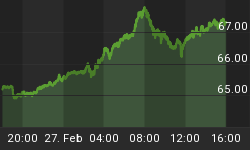Year-to-date, Bitcoin is up more than 275%, after it reached a record of over $28,000 this weekend, with volatility pushing it between $26,000 and just over $28,000 since, and with bitcoin bears saying $30,000 or even $40,000 is the potential new target. Bitcoin’s market cap now exceeds $500 billion, making it hands down the most exciting safe haven to be in for the year’s end.
At the same time, looming government regulations do not appear to be dampening investor interest at all.
The U.S. government is preparing a regulation that would strip anonymity from cryptocurrency to make it easier to track transactions.
The U.S. Financial Crimes Enforcement Network (FinCEN) has proposed a new rule that would require cryptocurrency wallets not hosted by financial institutions in the U.S. to be tied to verified identities.
As it stands, virtual currencies can be deposited in these unhosted wallets, funds that are harder for law enforcement to track.
The proposal would require banks and money services businesses dealing in crypto, including the exchanges, to collect and report on crypto owners who use wallets that aren’t held by any custodian.
Under the proposal, crypto companies would have to record and report crypto transactions above $10,000, just as banks are required to. Exchanges would also have to record personal information for crypto holders who transfer more than $3,000 in a day, according to FinCEN.
According to the Electronic Frontier Foundation (EFF), the new rules will make anonymity more difficult in a transaction between a private wallet and one hosted by an exchange service.
“...the U.S. government has been increasingly taking steps to undermine the anonymity of cryptocurrency transactions and importing the widespread financial surveillance of the traditional banking system to cryptocurrencies,” the nonprofit said.
The Treasury issued the proposal earlier this month with a Jan. 4 comment deadline, looking to make it official before President-elect Joe Biden is inaugurated.
Cryptocurrency exchanges are asking for a two-month review period, saying that two weeks in the peak of holiday season was not enough.
Yet, granting 60 days for the review time, which is the norm, would fall under the new Biden administration and there are signals that the new administration wouldn’t support such regulation.
Related: Global Tech Stocks On Edge Over Trump TikTok Ban
“There is no emergency here; there is only an outgoing administration attempting to bypass the required consultation with the public to finalize a rushed rule before their time in office is done,” Paul Grewal, cryptocurrency exchange Coinbase chief legal counsel wrote on the company’s blog.
Outgoing President Donald Trump has mentioned several times that he is not a fan of cryptocurrency.
Coinbase and other crypto exchanges have tweeted that they’re considering litigation. They say the proposal imposes greater reporting requirements on them than exist for banks handling traditional money transactions.
To justify the short time period, FinCEN notes both “significant national security imperatives”.
“U.S. authorities have found that malign actors are increasingly using CVC to facilitate international terrorist financing, weapons proliferation, sanctions evasion, and transnational money laundering, as well as to buy and sell controlled substances, stolen and fraudulent identification documents and access devices, counterfeit goods, malware and other computer hacking tools, firearms, and toxic chemicals,” the agency said.
By Michael Kern for Safehaven.com
More Top Reads From Safehaven.com:
















